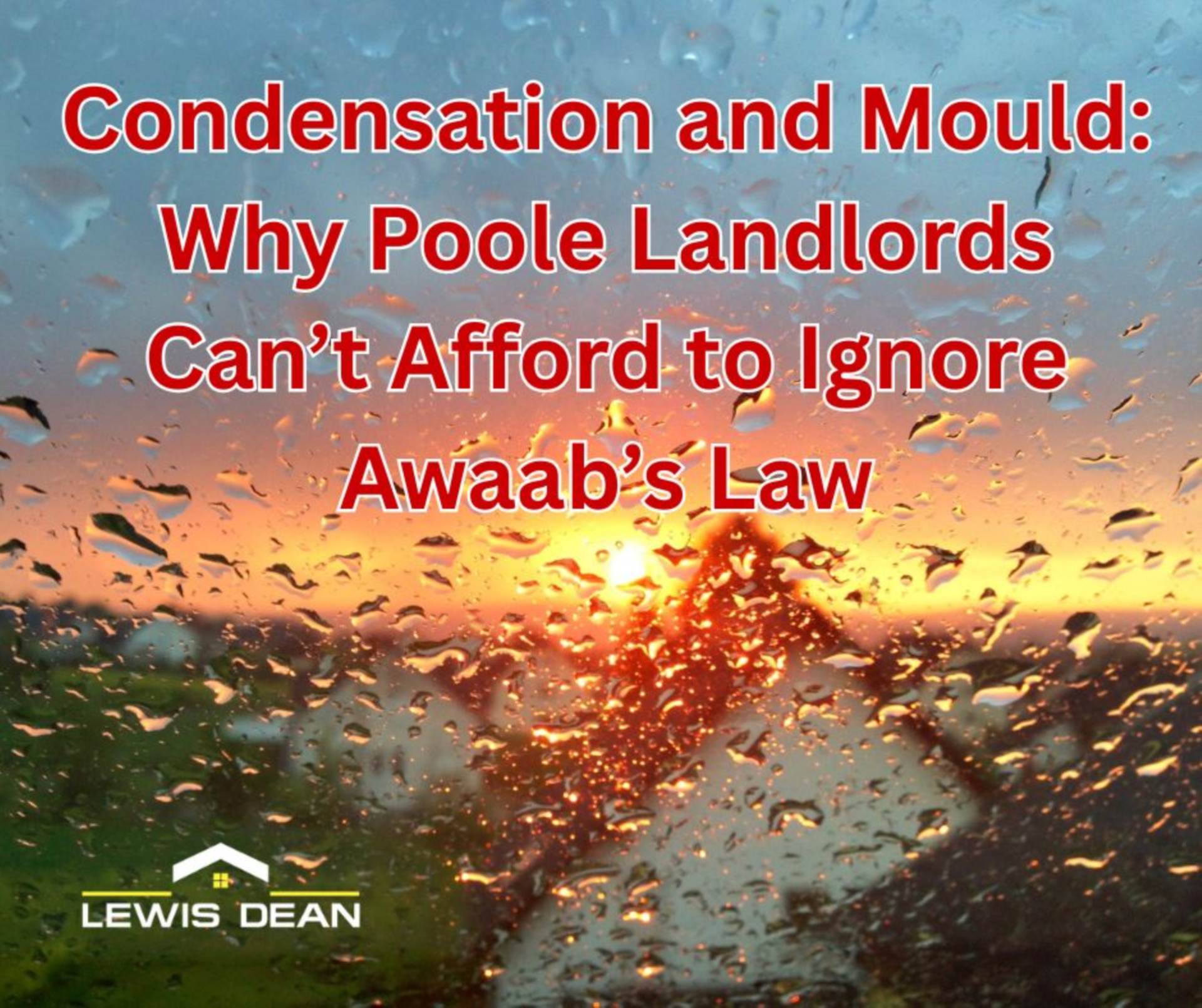
Date Published 08 October 2025
If you're a landlord, you've probably had a moan (or ten) about condensation and mould. It's that time of year again — mornings are colder, windows steam up, and before long you're getting photos of black spots creeping up the corners of bedroom walls.
But this winter, it's not just a nuisance.
With Awaab's Law on its way to the private rented sector, it's about to become a serious legal issue.
So what is Awaab's Law?
Awaab's Law came about after the heartbreaking death of a two-year-old boy, Awaab Ishak, who lived in a mould-infested flat in Rochdale.
The new law, which already applies to social housing, makes landlords legally responsible for preventing damp and mould — and for fixing problems quickly.
For private landlords, this means that once the Renters' Rights Act and the new Decent Homes Standard come into play, the same rules will apply. You'll need to investigate mould issues within 14 days, fix emergencies within 24 hours, and complete repairs within strict time limits.
In short: doing nothing is no longer an option.
'But isn't condensation just a tenant lifestyle thing?'
That used to be the standard answer — tenants not opening windows, drying washing indoors, cooking with no lids, etc.
However, under the new rules, the responsibility sits with the landlord. Even if the tenant contributes to the problem, you'll still need to show you've done everything possible to prevent and fix it.
The reality is, condensation and mould are often a mix of property condition and lifestyle habits. But now it's the property owner who'll face the fines, claims, and enforcement notices if it's not sorted.
What actually causes condensation?
It's simple science: warm, moist air hits a cold surface and turns into water droplets. You'll see it on windows and mirrors, but it also seeps into walls, ceilings, clothes, and furniture. Leave it long enough, and it turns into black mould — which looks awful, smells musty, damages plaster and paint, and is terrible for health.
Mould is classed as a category 1 health hazard, meaning it's in the same league as asbestos or faulty electrics when it comes to risk. It's linked to asthma, respiratory problems, and other long-term issues. That's why environmental health officers now treat it so seriously.
What Poole landlords can do to stay compliant.
You can't control whether your tenant dries their socks on the radiator, but you can make sure your property is well-prepared for winter. Here's where to start:
Ventilation – Make sure extractor fans in kitchens and bathrooms actually work (and haven't been switched off at the isolator).
Trickle vents in windows, cooker hoods that vent outside, and even simple reminders to 'crack a window' can make a difference.
Heating & Insulation – A property that stays warmer is less likely to have condensation. Check your insulation, service your boiler, and make sure the heating system is efficient and affordable to run.
Tenant Education – Leave a simple one-page guide explaining what causes condensation and what tenants can do to help (like wiping down windows or using extractor fans). It shows you've done your part — and that's vital if any disputes ever arise.
Regular Inspections – Keep a record of visits, take photos, and respond promptly to any early signs of damp. If you've shown due diligence, you're in a much stronger position legally.
A note on new technology (without the sales pitch!)
There are some clever gadgets out there now that can make life easier. Systems like Vent-Axia Revive 7 and Switchee are designed to monitor humidity levels and boost ventilation automatically. They're used a lot in social housing, but now private landlords can get them too.
You don't have to install these, but they do help prevent issues before they start — and they can give you useful data if a tenant ever raises a complaint. Think of them as a 'peace of mind' option rather than a must-have.
The cost of ignoring the problem
Some landlords will still think, 'It's not that bad — just a bit of mould.' But the legal and financial risks are real.
Once Awaab's Law applies to the private sector, ignoring damp and mould won't just mean a slap on the wrist. You could face:
Enforcement action from the council
Claims under the Homes (Fitness for Human Habitation) Act
Potential fines and repair orders.
Damage to your reputation as a landlord.
The bottom line? It's better to spend a bit now on prevention than a lot later on legal costs, repairs, and complaints.
In summary
Awaab's Law is a big shift — it's about accountability, safety, and making sure tenants live in healthy homes. But it doesn't't have to be scary (especially if you are using a good letting agent ie us).
With good communication, regular checks, and a bit of forward planning, you can protect both your tenants and your investment. And if you're proactive now, you'll avoid a world of stress later.
So, next time you notice a bit of black mould in the corner of a property — don't shrug it off. Sort it early, document everything, and stay one step ahead of the new rules.
#landlordsinpoole #uptonlandlords #hamworthylandlords